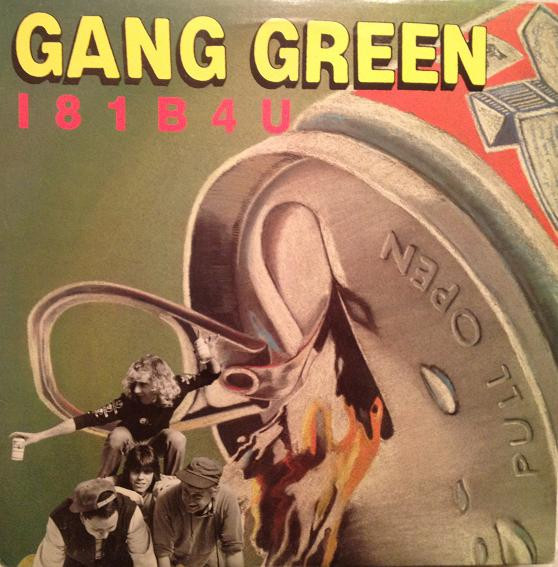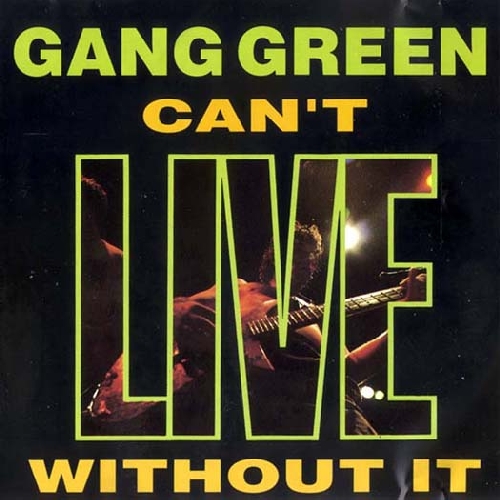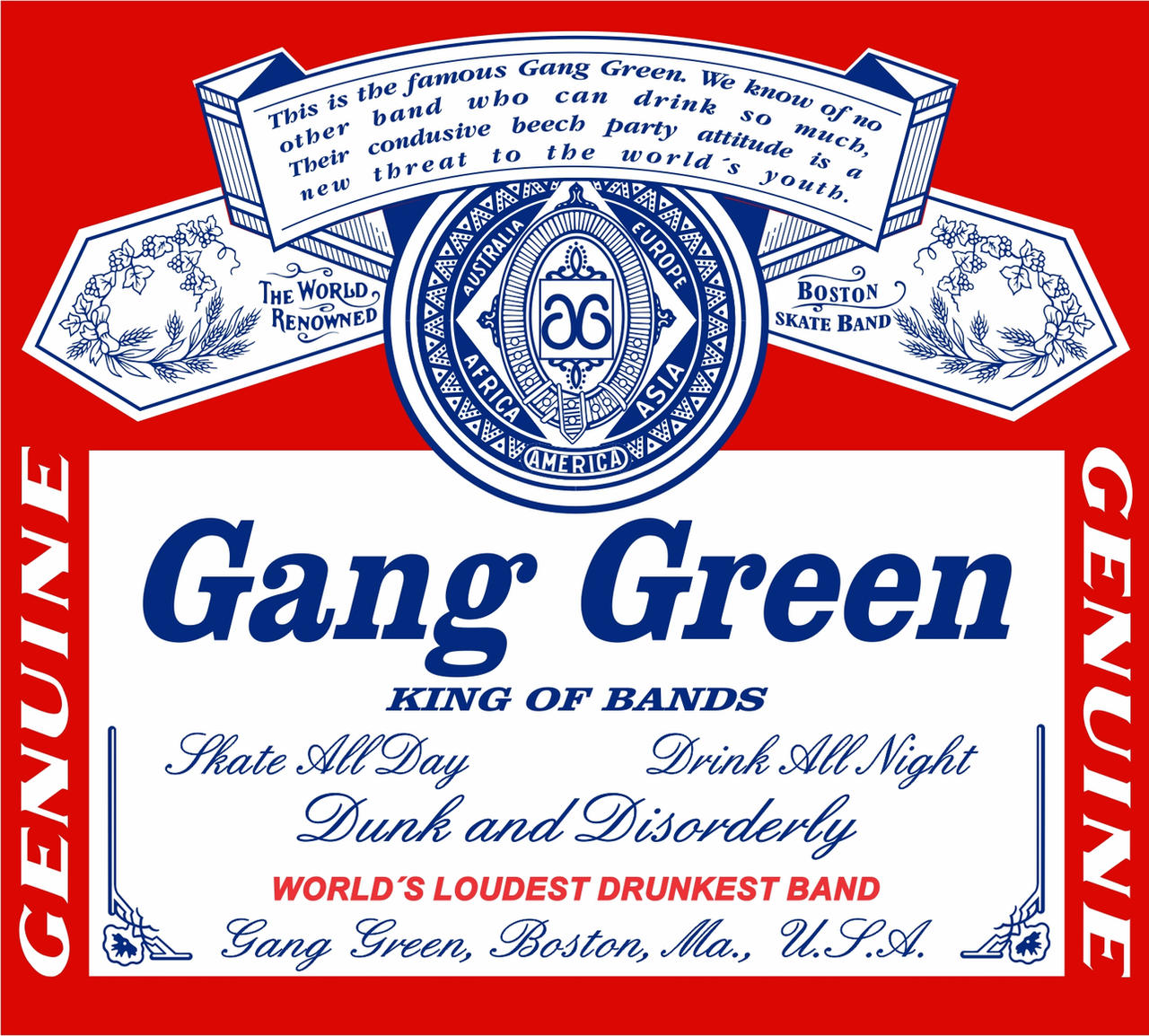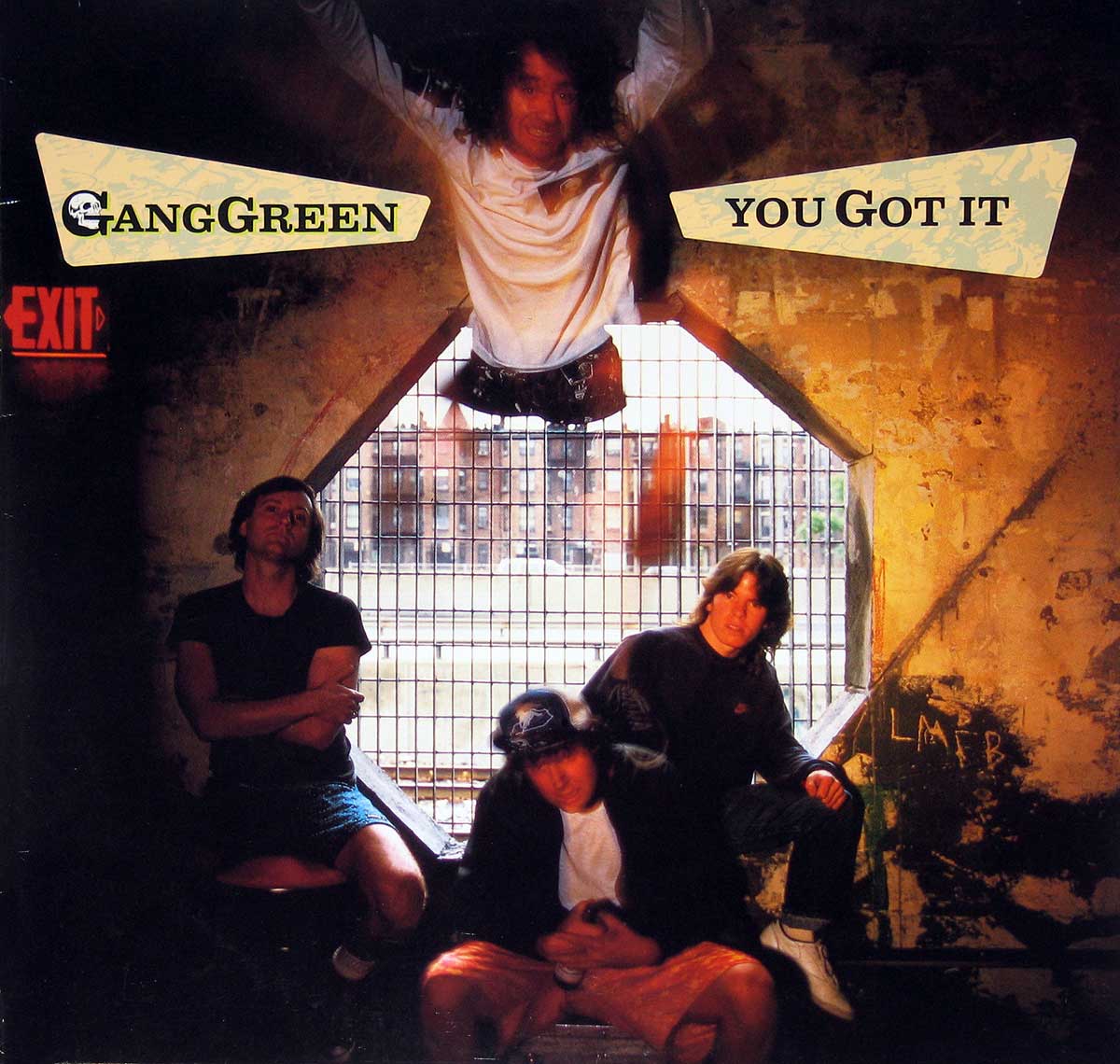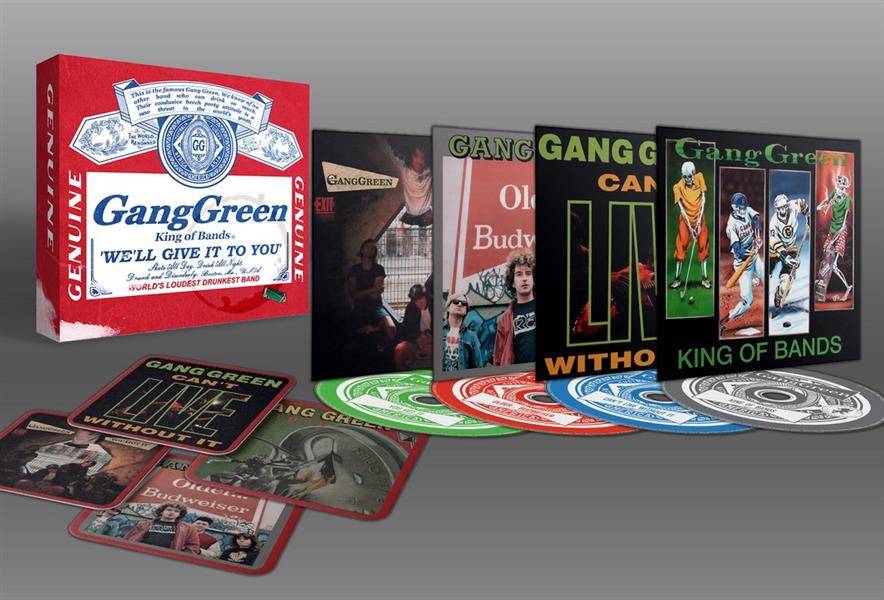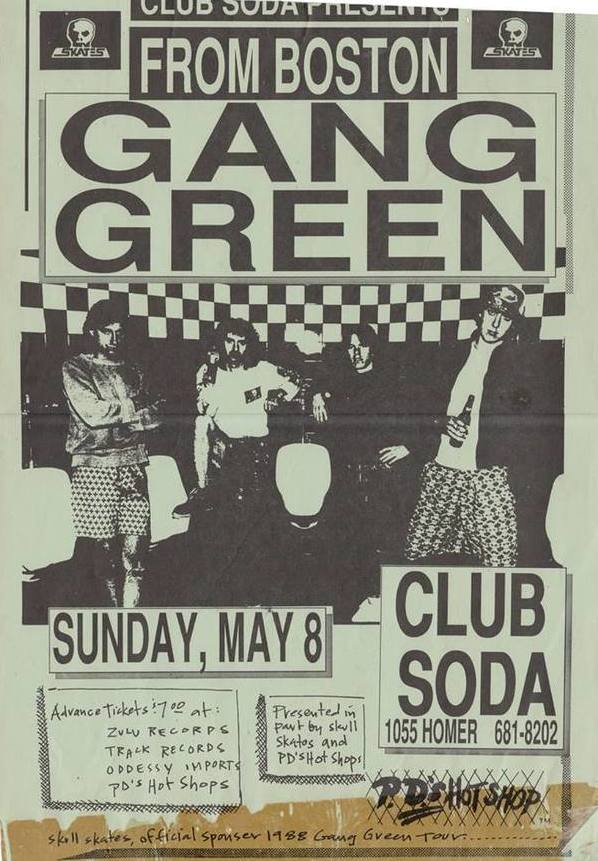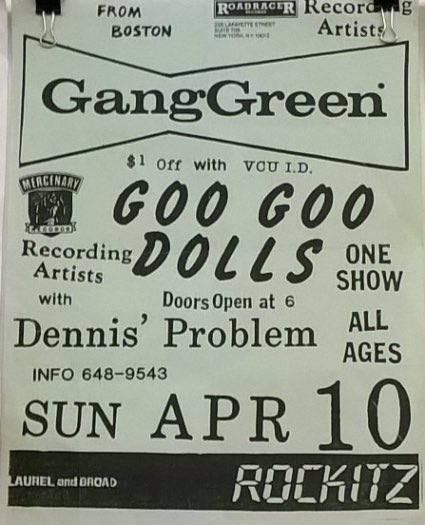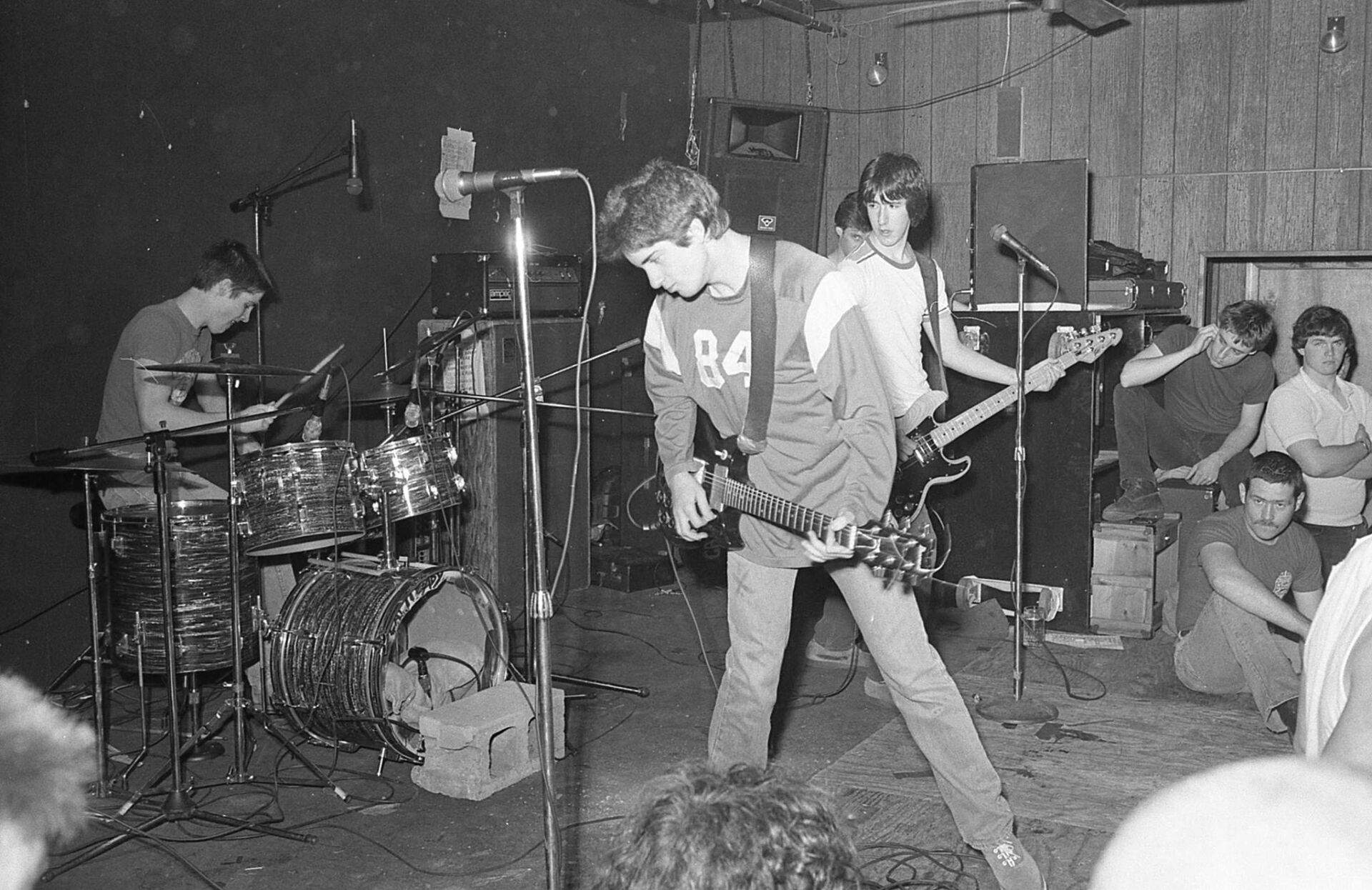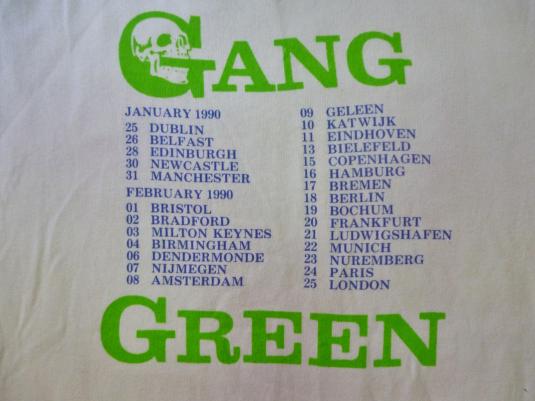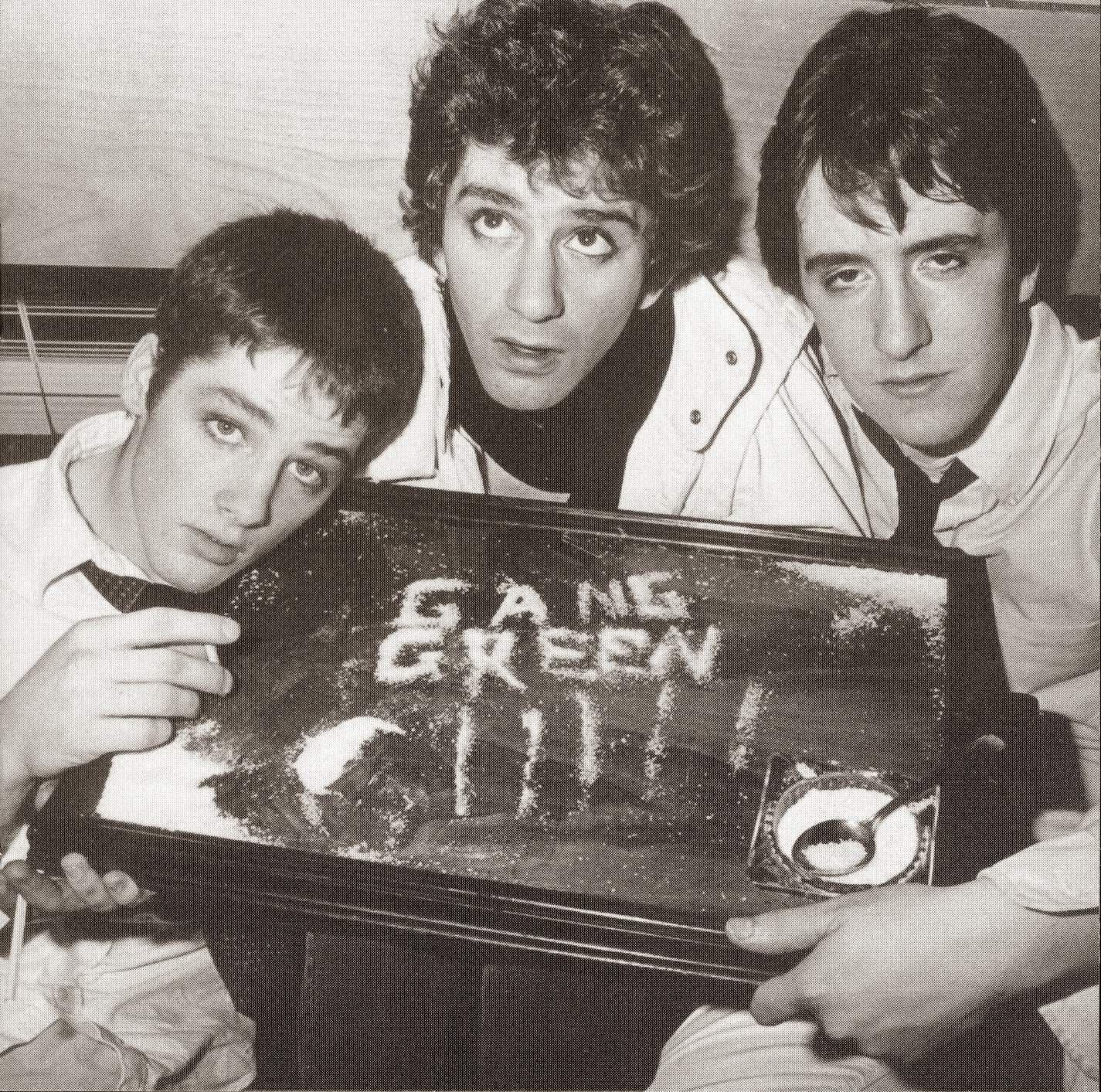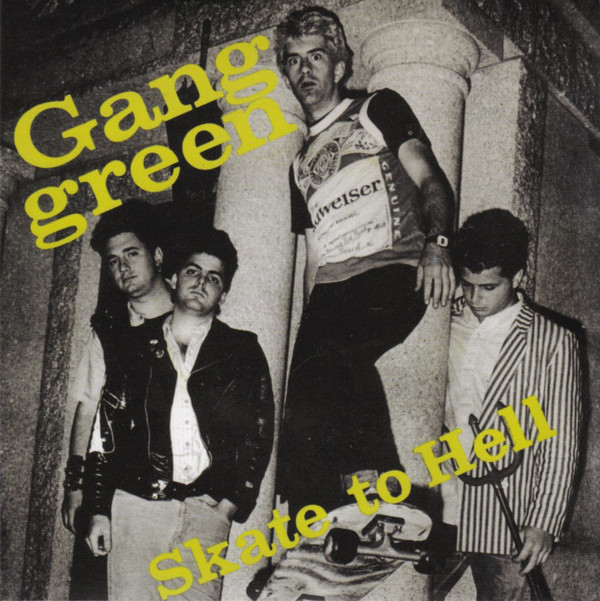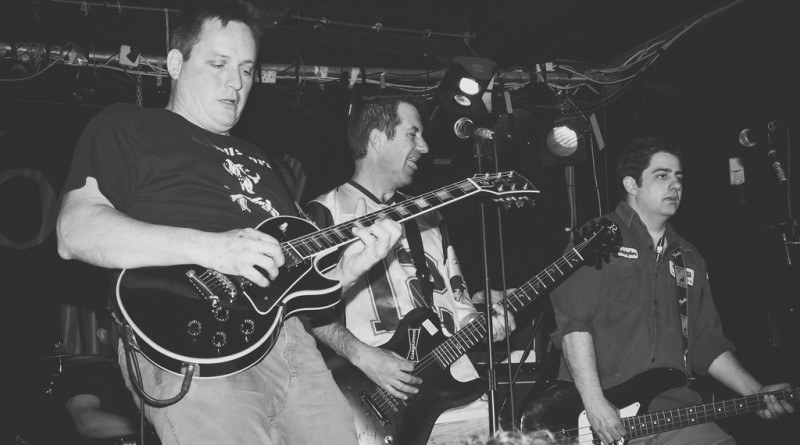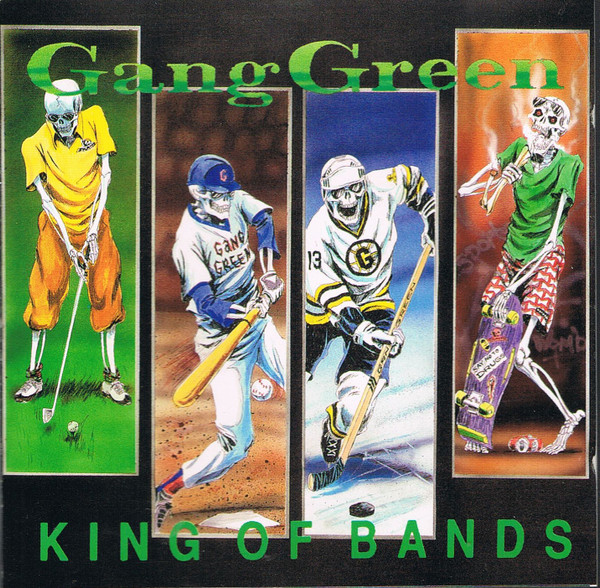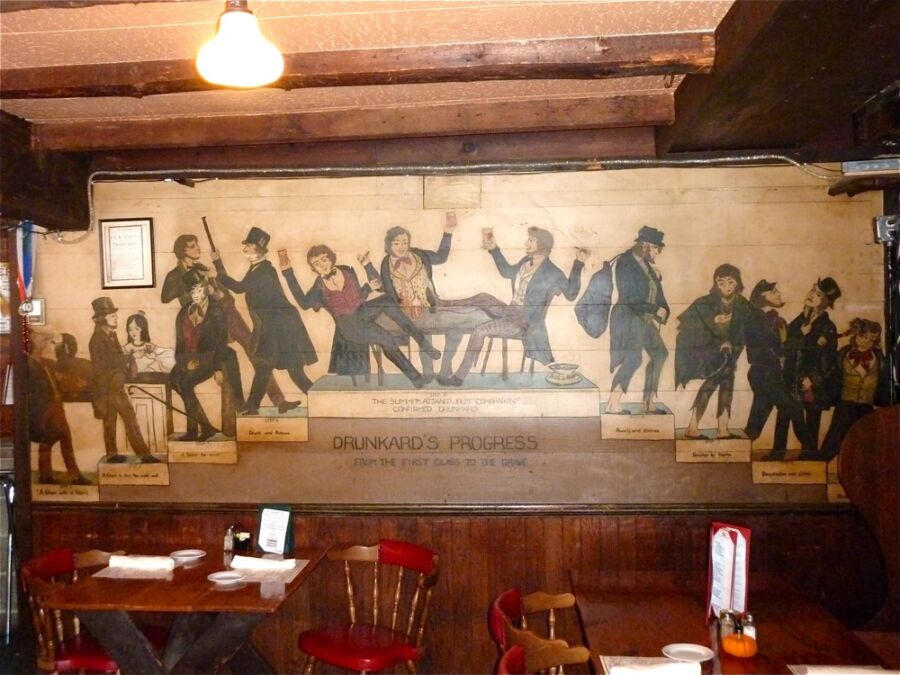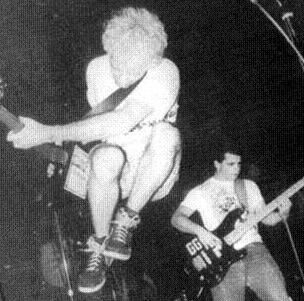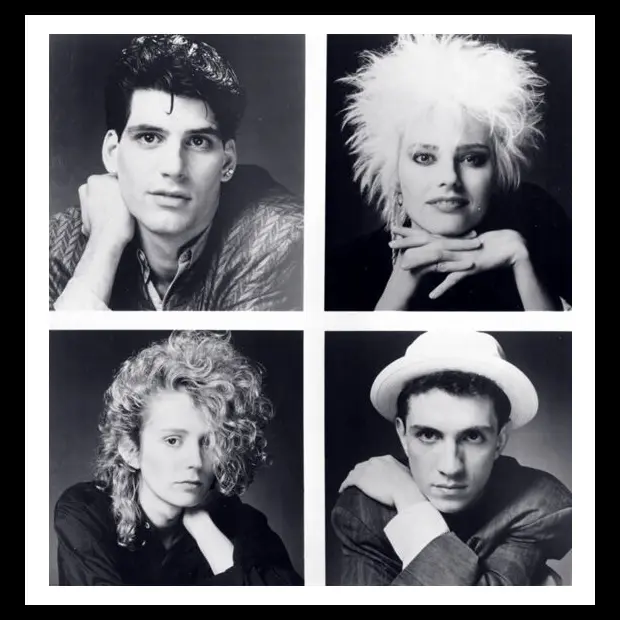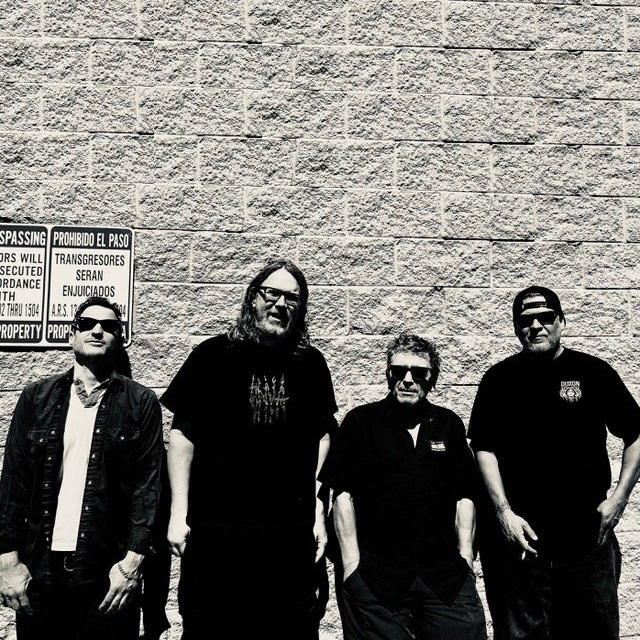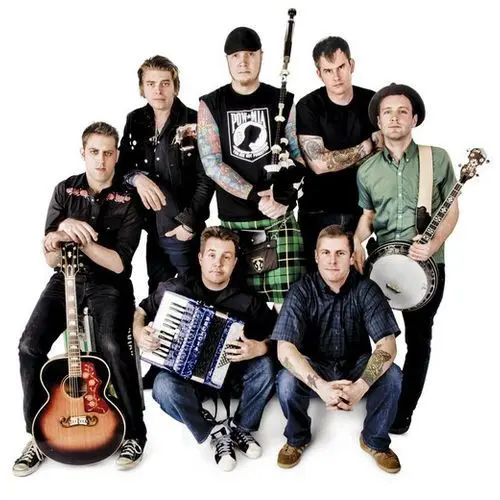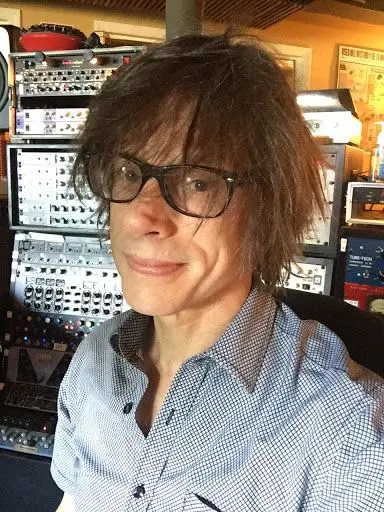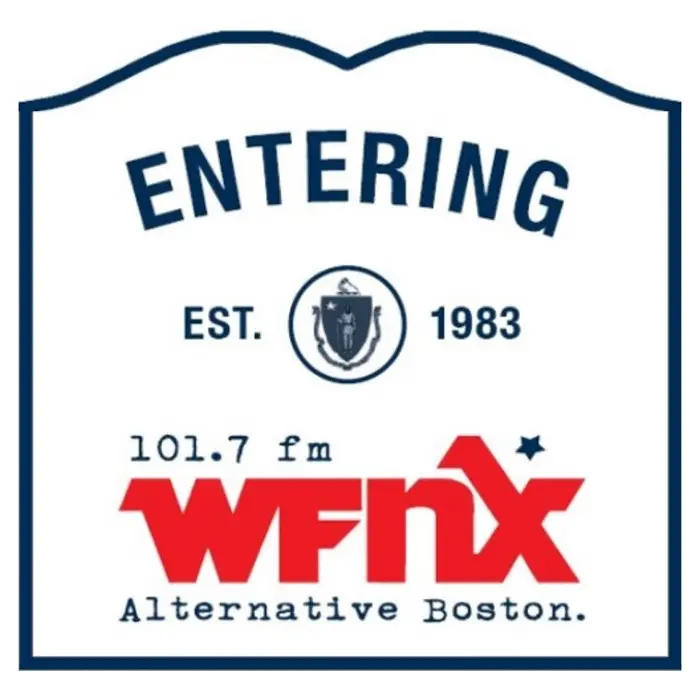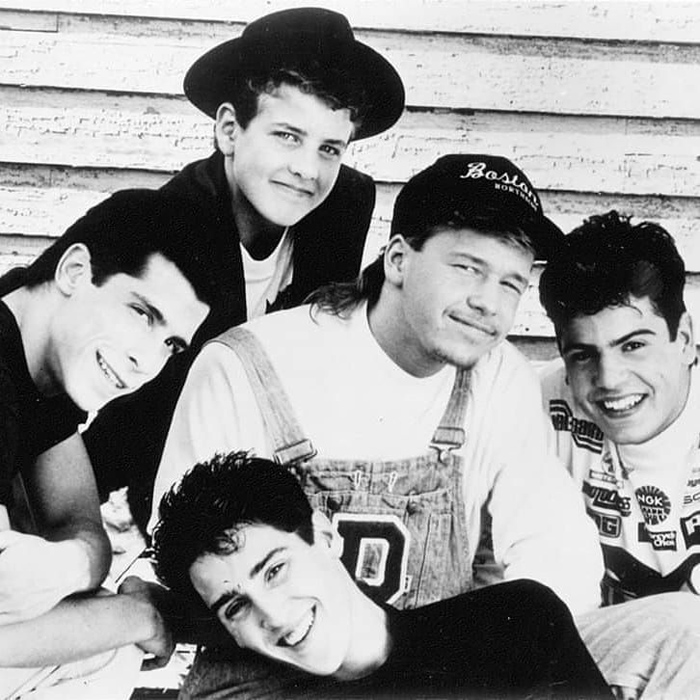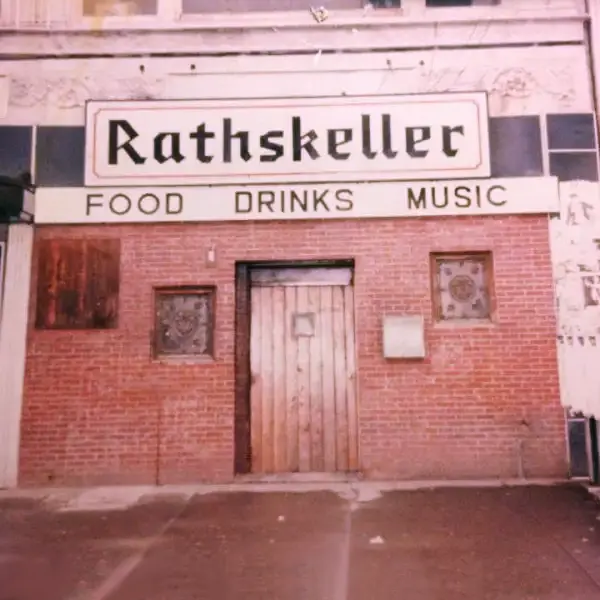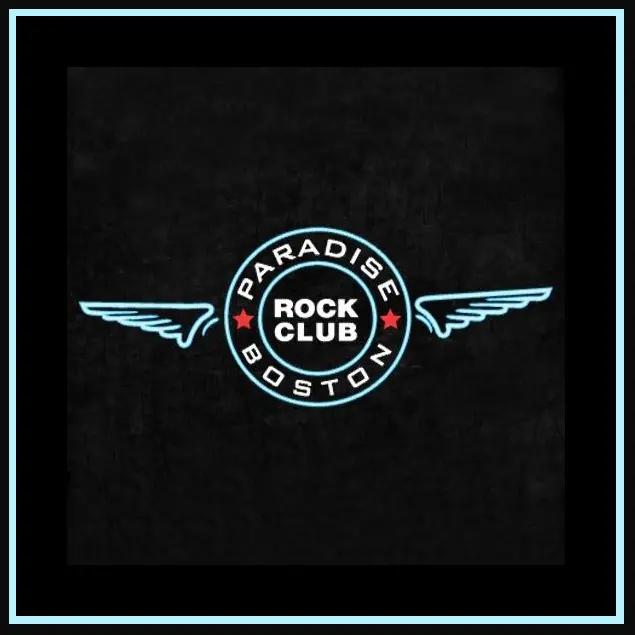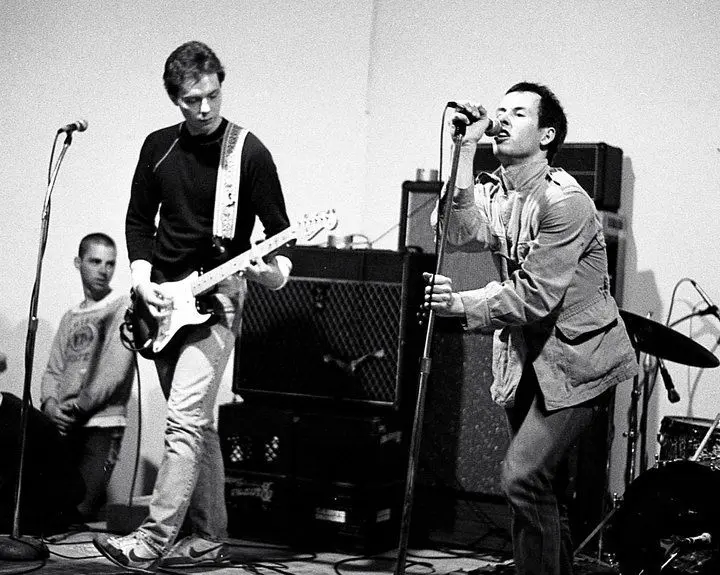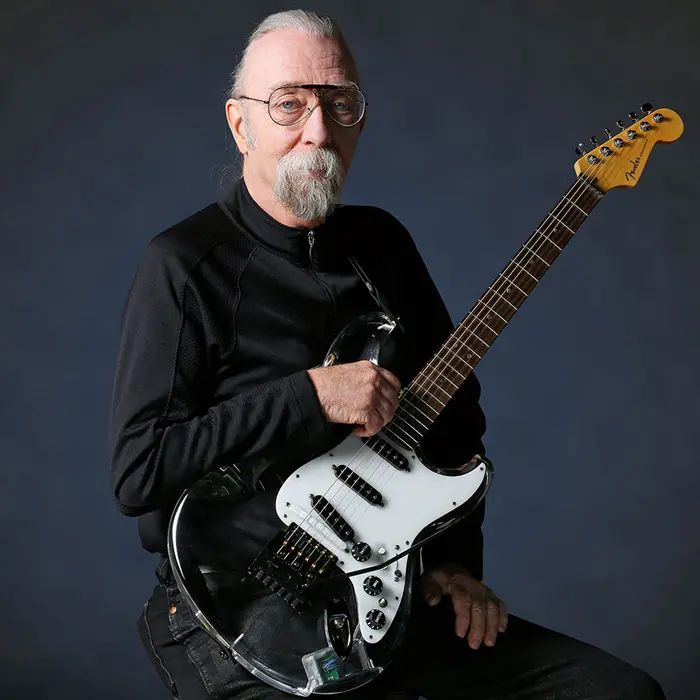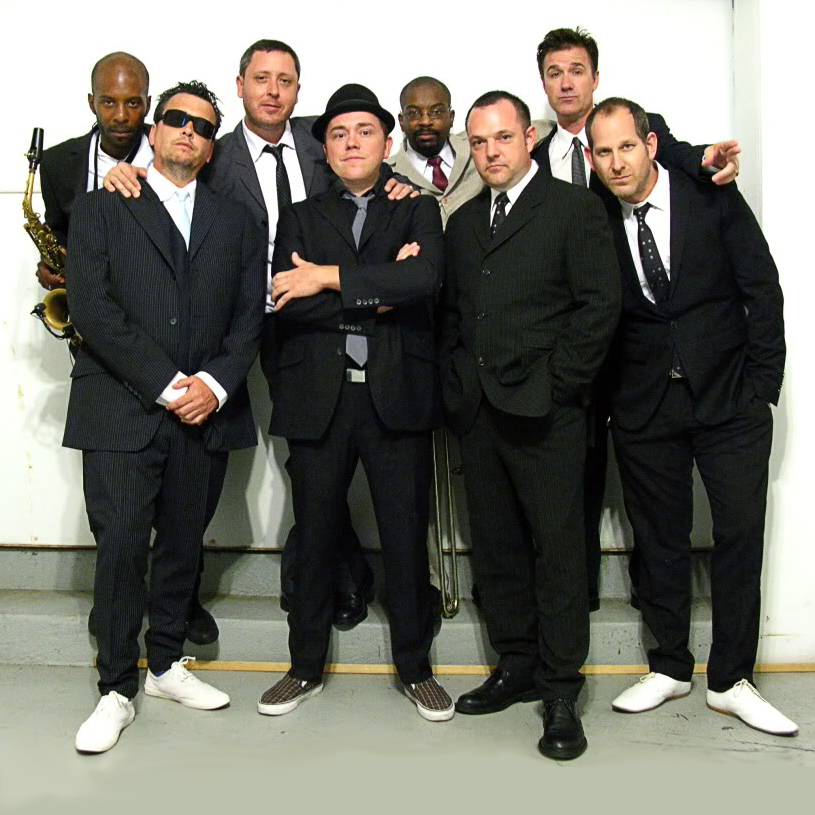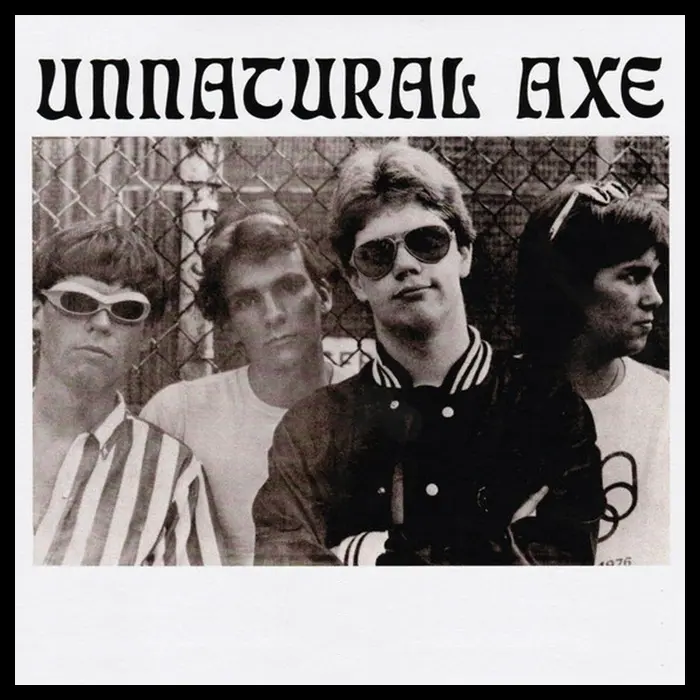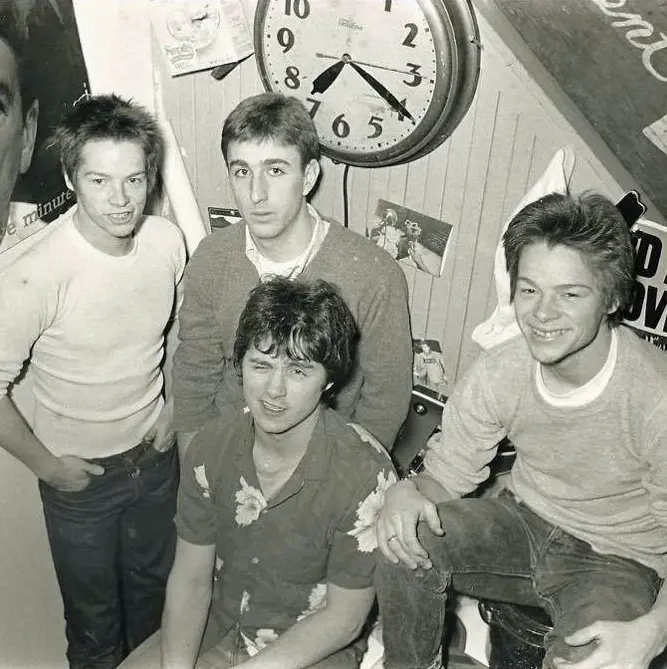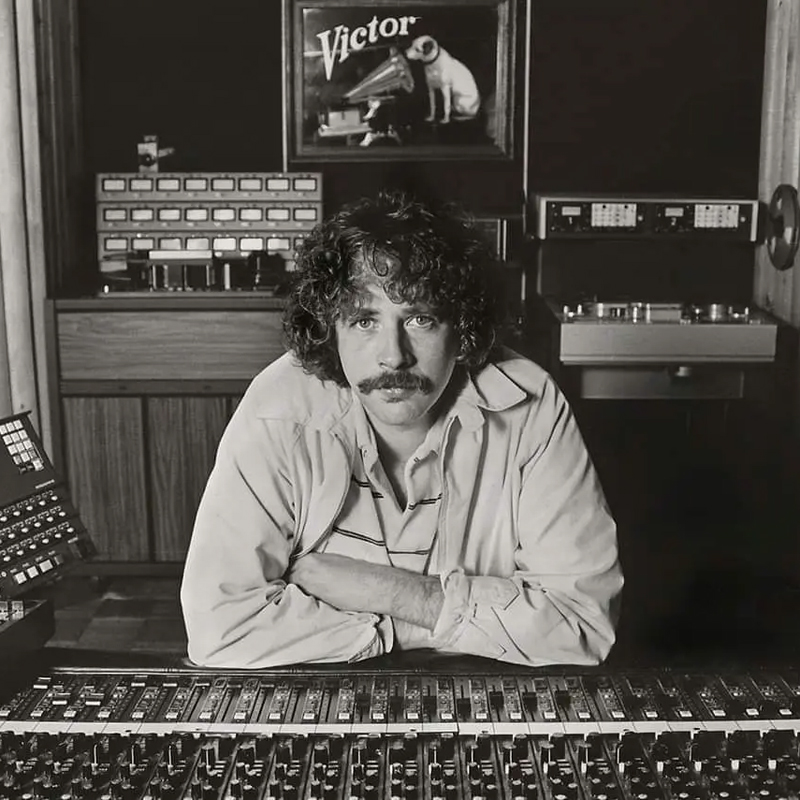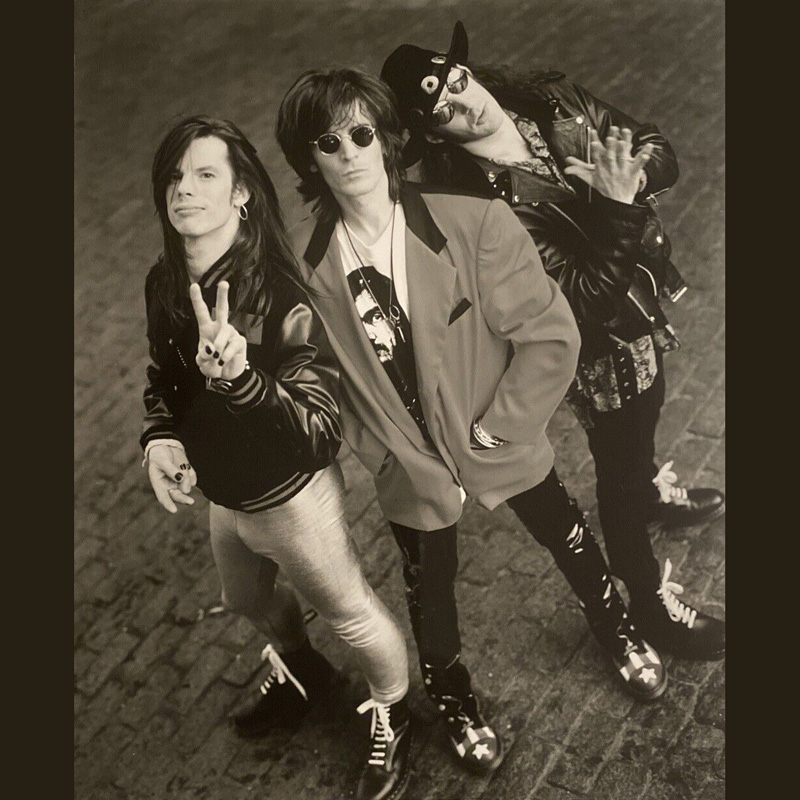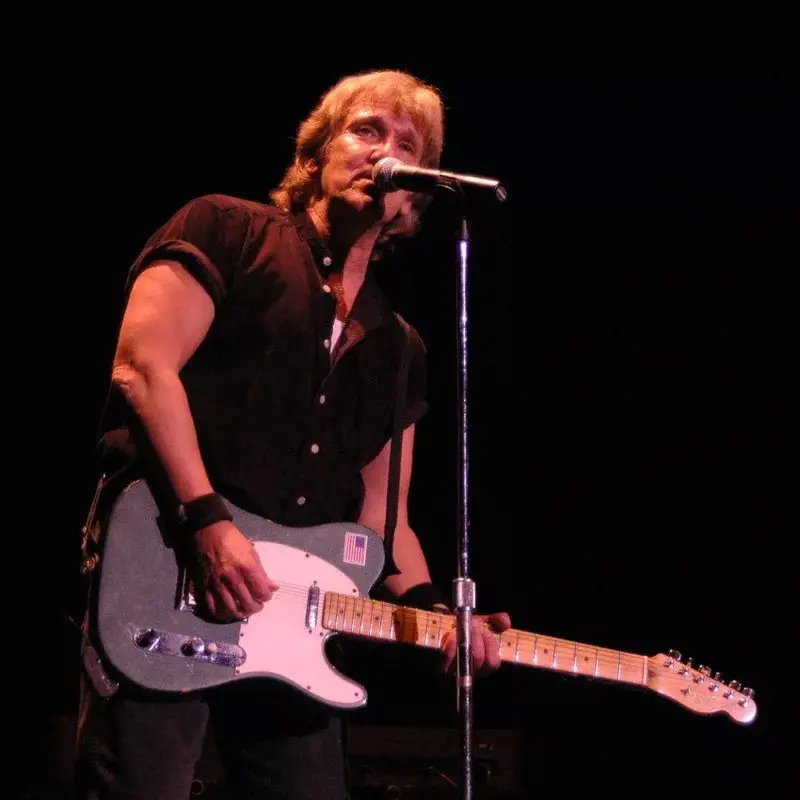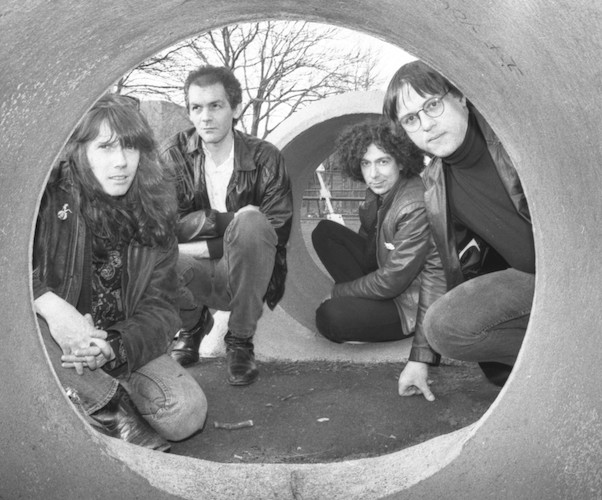Gang Green
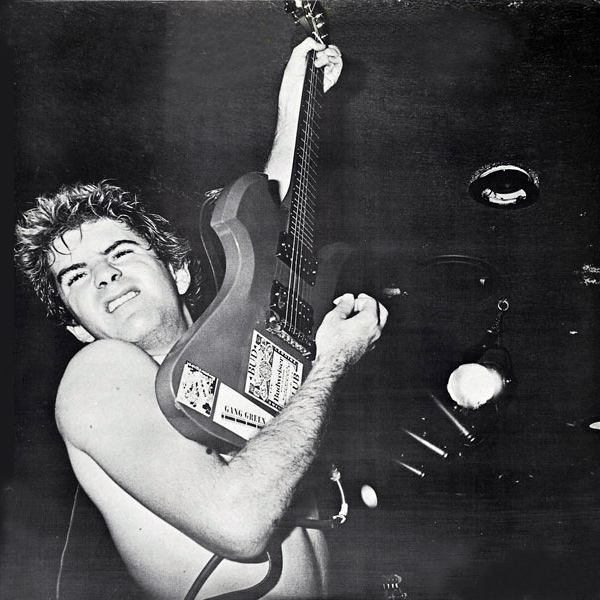
In the late 1970s, mainstream American radio was ruled by the painstakingly produced, pristinely polished sound of bands like The Eagles and Steely Dan, but the rise of punk a few years earlier had changed rock ‘n’ roll forever. And a harder, faster, even more politically aware genre was about to explode, one that took punk’s frenzy, fury, angst and aggression to extremes even Johnny Rotten and Iggy Pop might not have imagined.
That genre was hardcore, of course, punk’s cranked-up cousin. Slam dancing and stage diving replaced the inanity and innocence of the pogo – leaving blood on the dance floor, not just the occasional stubbed toe – and shows became what former Boston Globe music writer Jim Sullivan once called “an unrefereed rugby match to jackhammer tempos.”
And among hardcore’s most defining bands was Gang Green, formed in 1980 in Braintree, Massachusetts. Along with contemporaries like Circle Jerks, Bad Brains, Dead Kennedys, Black Flag and The Minutemen, the group paved the path for thrash and speed metal, crossover thrash, crust punk, crunkcore, emocore and other varieties of what’s become an almost meaningless catch-all category – “alt rock.”
Overview
With lightning-fast, three-chord odes to teenage rebellion, sexual frustration, boozed-fueled destruction and skateboarding obsession, Gang Green was by far the best-known Boston-based band to arise from the hardcore scene that originated in Los Angeles around 1978. With their irreverent, goofball humor and boozed-up, coked-out shows, the group built a rabid local following in the early ‘80s, then became a major presence on the burgeoning East Coast scene and eventually on the national and international ones.
Like most of their contemporaries, the band’s foundations had nothing to do with instrumental chops or vocal training. “We weren’t singing. We don’t know how to sing,” said frontman Chris Doherty in the 2006 documentary American Hardcore: The History of American Punk Rock 1980-1986 (Sony Pictures). “We were just screaming against authority, against our parents and everything else that was pissing us off in our life.”
Unlike most of their contemporaries, though, the vast majority of Gang Green’s songs were not overtly political. Instead, the group’s calling cards were their totally DIY approach, unapologetically party-hearty ethos and staunchly anti-establishment attitude. When it came to blasting out buckets of anger and angst, liquored-up laughs and fist-in-your-face fun, Gang Green had few rivals.
The band recorded just four studio albums, one live LP and four EPs – with four different lineups – but stands shoulder-to-shoulder with ska-core icons The Mighty Mighty Bosstones in terms of significance in New England’s musical history. “When it comes to reckless, speedin’, boozin’, fightin’ Boston hardcore, Gang Green’s Chris Doherty and crew are the kings,” wrote the Miami New Times‘ Jacob Katel in 2014.
Formation, Early shows, This is Boston, Not L.A.
Guitarist-vocalist Doherty formed the first incarnation of Gang Green in 1980, when he was a 15-year old student at Braintree High School, with fellow teens Bill Manley (bass) and Mike Dean (drums). After cutting their teeth primarily at parties in friends’ backyards, in 1981 the trio began playing at notable Boston venues including Cantone’s, The Channel, The Rathskeller and the Paradise Rock Club.
In 1982, seven of the band’s song’s appeared on the 30-track compilation This is Boston, Not L.A., issued by Modern Methods Records. Only three were over a minute long, “I Don’t Care” (1:01), “Kill a Commie” (1:07) and “Rabies” (1:26); the others were “Snob” (0:26), “Lie Lie” (0:33), “Narrow Mind” (0:41) and “Have Fun” (0:54). The LP also included previously unreleased material from six other acts – The F.U’s, Jerry’s Kids, Decadence, The Proletariat, Groinoids and The Freeze – and was named after a 25-second-long Freeze song. Gang Green appears on the jacket in a photo taken by Bostonian photographer Philin Phlash at Streets nightclub in Boston.
Unsafe At Any Speed, Sold Out, First lineup change
In early 1983, Modern Methods released the six-song EP Unsafe at Any Speed, which included Gang Green’s “Selfish” (1:44), and in mid-1983 the original trio went their separate ways. Doherty joined Jerry’s Kids, as did Dean after a stint in the military, and Manley moved to Hawaii. Later that year, Doherty left Jerry’s Kids to join Stranglehold, then The Cheapskates and in mid-1984 Taang! Records issued Sold Out, an EP featuring three of the trio’s supremely short songs.
In late 1984, Doherty reformed Gang Green as a four-piece outfit with a completely new lineup consisting of former members of D.A.M.M. (Drunks Against Mad Mothers), The Freeze and Smegma And The Nunz: guitarist Chuck Stilphen, bassist Glen Stilphen and drummer Walter Gustafson.
Another Wasted Night
In 1986, Taang! released the band’s debut album, Another Wasted Night, which The Boston Phoenix and WFNX put at #19 in their top-50 “Boston Rocks” list that year. The 10-track disc includes a cover of ‘Til Tuesday’s 1983 hit “Voices Carry” – the longest song on the LP at 3:28 – and the two-minute-long “Alcohol,” which has been covered by bands from the US, UK, Europe and Australia. Dropkick Murphys included it on their 2002 album Live on St. Patrick’s Day from Boston, MA and in 2010 it was part of the soundtrack for the film Jackass 3D.
Second lineup change, P.M.R.C. Sucks, Roadrunner signing
Gang Green’s lineup changed again soon after the release of Another Wasted Night, with the Stilphen brothers leaving to form Mallet-Head and Gustafson joining The Outlets. The new incarnation consisted of Doherty, guitarist Fritz Erickson, bassist Joe Gittleman of The Mighty Mighty Bosstones and drummer Brian Betzger of Jerry’s Kids.
In 1987, after Taang! issued the four-song EP P.M.R.C. Sucks – a reference to the Parents Music Resource Center, a censorship-advocacy group – Gang Green signed with heavy metal-focused Roadrunner Records. The move from punk-centric Taang! made sense, critics said, since the band’s sound was evolving rapidly toward heavy metal.
You Got It, I81B4U
Gang Green’s first LP for Roadrunner, released on its Emergo imprint, was the 12-track You Got It, recorded in Carlisle, Massachusetts, at Blue Jay Recording Studio. Gone were the days of jingle-length jolts as the album included “Born to Rock” (4:36) and “Sick, Sex, Six” (6:11), though there were exceptions like “L.D.S.B.” (1:11) and “Haunted House” (1:39).
In 1988, the band cut their second Roadrunner disc, the EP I81B4U, meaning “I ate one before you,” a play on Van Halen’s OU812 (released in May that year). Recorded at Newbury Sound in Boston, it firmly established the group as the halfway point between hardcore and speed metal, a mix eventually labeled “crossover thrash.”
Gang Green
Older…Budweiser, Third lineup change
In 1989, Gang Green recorded a third album, Older…Budweiser, in Warren, Rhode Island, at Normandy Sound, where musician-turned-engineer Phil Greene had recorded and/or mixed LPs for The Zulus, The Neighborhoods, John Cafferty and New Kids on the Block, among others. The LP differed from its predecessors in three ways: first, the socio-political themes of songs like “Church of Fun,” a stab at televangelism; second, the fact that Doherty wrote only one track himself (“Flight 911”), the others being co-written or penned by other band members; and third, the use of violins and other string instruments on the song “Ballad.”
Shortly after the sessions, Doherty fired Gittleman and replaced him with Josh Pappé of crossover thrashers D.R.I.; Gittleman returned to The Mighty Mighty Bosstones and Pappé played on the supporting tours of North America, the UK and Europe.
Can’t Live Without It, King of Bands, Fourth lineup change
In February 1990, the band recorded their only official live album, Can’t LIVE Without It, at The Marquee Club in London. That spring, Doherty assembled yet another new lineup – guitarist Mike Lucatonio, bassist Kevin Brooks and Gang Green’s former kitman Gustafson – and Roadrunner dropped the band from its roster, beginning a nearly seven-year hiatus. In December 1991, the label issued a compilation, King of Bands (a play on Budweiser’s slogan, “King of Beers”), which included two new tracks, “Thunder” and “Rub It in Your Face.”
Reformation, Back & Gacked, Fifth lineup change
In February 1996, Doherty, the Stilphen brothers and Gustafson re-formed to play five shows, including ones at the Rathskellar in Boston and CBGB in New York City. Later that year, Gang Green resurfaced again with yet another new lineup; guitarist Mike Earls and bassist Matt Sandonato replaced the Stilphen brothers. The band re-signed with Taang! and in May 1997 the label released the EP Back & Gacked, recorded at Capertown Sound in Boston and mixed and co-produced by David Minehan.
Another Case of Brewtality, Preschool
The band’s fourth and final studio album, also recorded at Capertown and mixed by Minnehan, was the 23-track LP Another Case of Brewtality, issued in October 1997; it includes all six songs from Back & Gacked. Simultaneously, Taang! released Preschool, a compilation of previously released Gang Green material recorded from 1981 to 1983.
Lyrically, Another Case of Brewtality moved away from the social-political topics of Older…Budweiser. The one exception was the album’s sole cover, Stiff Little Fingers’ “Suspect Device,” about how the governments promote bad ideas that ultimately lead to destruction. Gang Green toured throughout 1997 and 1998, after which Doherty moved to Cincinnati. For the next seven years, the group reunited once or twice a year for gigs in Boston and/or New York City.
Reunion tours, Doherty’s stroke, Benefit concert
In 2005, Doherty and a sixth lineup opened for Dropkick Murphys on part of their US tour and in 2007 the band appeared along the East Coast, in the UK and in Ireland. From 2013 to 2018, Doherty was in a band with three veterans of Cincinnati’s hardcore scene, guitarist Chris Donely, bassist Sean Boyle and drummer Dale Kishbaugh.
On October 31, 2018, 53-year-old Doherty suffered a stroke that left him paralyzed on his left side and temporarily unable to speak. Following brain surgery, he began several years of intensive physical-rehabilitation. Ten weeks later, on January 11, 2019, Gang Green’s former manager Alec Peters, booker Sean McNally and manager Dean Jackson organized a 10-act benefit show at the Paradise Rock Club called “Not a Wasted Night.” Among the acts were The Dogmatics, The Outlets, The F.U.’s and Unnatural Axe.
On October 1, 2022, almost four years to the day after his stroke, Doherty returned to the stage with Gang Green at the Midway Café in Jamaica Plain. Sharing the bill were The Welch Boys, Guns of Brighton, The Hagglers and The Golly Geewillikers.
We’ll Give It To You, 2023 tour, Current lineup
In January 2023, Cherry Red Records released a 56 track, four-disc box set of Gang Green material, We’ll Give It to You, the title taken from a song on their You Got It album. It includes the albums You Got It, Older… Budweiser, Can’t LIVE Without It and King of Bands. In July 2023, the band toured the East Coast and in August they appeared at festivals in Germany, the Netherlands, Belgium, Czechia and England with the biggest Gang Green lineup up ever: Doherty, Johnnie Luevano (lead guitar), Mikke Brennan (rhythm guitar), Nick Hebditch (bass), Josh Goodreau (drums) and Dean T. Jackson (vocals).
Doherty’s reflections, “Everybody’s Got a Story”
Asked in 2014 about his years fronting Gang Green and other groups, Doherty said the most gratifying part is listening to fans’ stories. “Just hearing stuff like, ‘My grandpa got me into Gang Green at 12’ or ‘I drove cross-country with my girlfriend and all we had was Another Wasted Night on cassette and we listened to it the whole way,” he told the Miami New Times. “Everybody’s got a story. And somehow we made an impression on ’em.”
(by D.S. Monahan)

